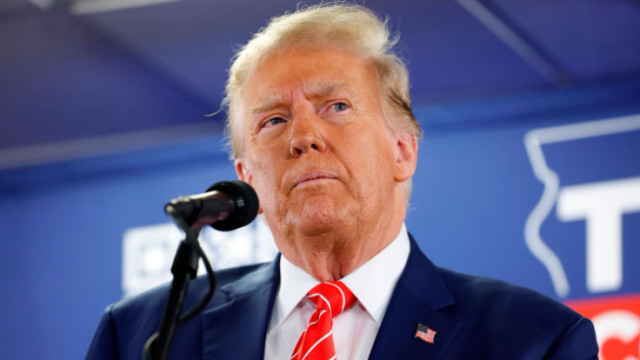As the November presidential election in US draws near, the Republican Candidate, Donald Trump, has requested that the judge in his New York hush money case postpone his sentencing until after the election.
In a letter released, Trump’s legal team, representing the former president and current Republican candidate, said sentencing him on September 18 approximately seven weeks before the election would constitute interference with the election process.
Trump’s attorneys noted that a delay would also give Trump time to consider his options after the trial judge, Juan Merchan.
Merchan is expected to decide on September 16 whether to dismiss the case based on a U.S. Supreme Court ruling in July concerning presidential immunity.
But Trump's lawyers, Todd Blanche and Emily Bove said, “There’s no reason to continue rushing this process."
Blanche and Bove sent this letter to Merchan on Wednesday, following the judge’s denial of their latest motion requesting he recuse himself from the case.
In their letter, the attorneys reiterated their claim that the judge has a potential conflict of interest because his daughter works as a Democratic political consultant, including for Kamala Harris during her 2020 presidential campaign.
By delaying the sentencing until after the election “the Court would lessen, if not remove, concerns about the fairness of any future proceedings,” the attorneys argued.
Although Election Day is on November 5, many states allow early voting, with some starting just before or after Trump’s scheduled sentencing date on September 18.
Merchan, who has expressed confidence in his ability to remain impartial, had not yet ruled on the request for a delay.
The Manhattan district attorney’s office, which brought the case against Trump, declined to comment.
In May, Trump was found guilty of falsifying his business records to hide a 2016 payment to porn actress Stormy Daniels, intended to keep her quiet about an alleged 2006 sexual encounter.
Prosecutors argued that this payment was part of a broader effort by Trump to prevent voters from hearing damaging stories during his first presidential campaign.
Trump has maintained that all the allegations were false, saying that the business records were accurately recorded, and that the case was a politically motivated attempt to harm his current campaign.
Manhattan District Attorney Alvin Bragg is said to be a Democrat.
Trump’s defence claimed that the payments were legitimate legal expenses and were therefore properly documented.
Trump has vowed to appeal, but he cannot do so until after sentencing.
In an earlier letter, Judge Merchan had set September 18 as the date for either sentencing or other appropriate legal actions.
Blanche and Bove argued in their request for a delay that it would be unfair to Trump to have such a short time between the scheduled immunity ruling on September 16 and the sentencing just two days later.
The Supreme Court’s immunity ruling however limits the prosecution of former presidents for official acts and restricts the use of such acts as evidence in cases involving unofficial actions.




















